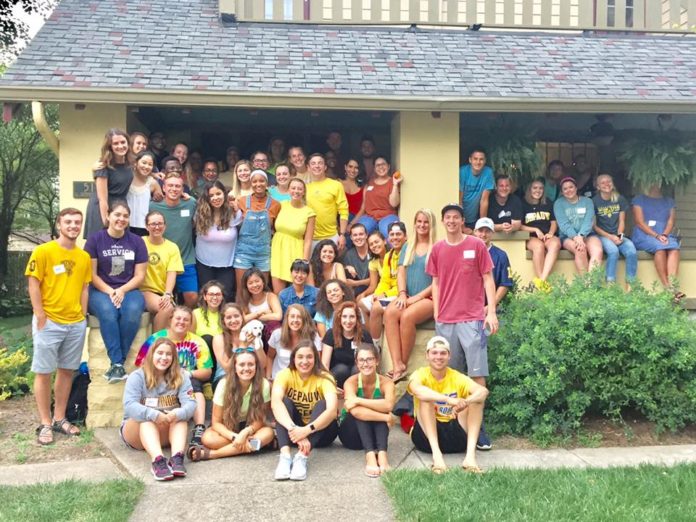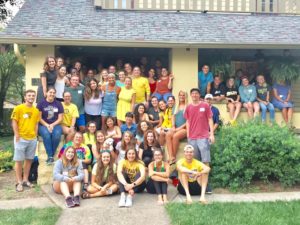

An indispensable part of the DePauw first-year experience can be credited in part to the devoted students and staff of the mentor program.
“I always knew I wanted to work with the program and eventually one thing led to another,” said Cara Setchell, first-year class dean and director of the mentor program when asked about how she got involved with the group. She has helped run the program directly for eight years, but has been helping out since her first year at DePauw in 1999, when the modern-day mentor program was introduced.
Setchell and her fellow staff members train 55 upperclassmen to help ensure the incoming first-year class has prepared leaders they can count on. Training for this year’s mentors started on Aug. 13, and lasted up to 12 hours a day, everyday, until first-years move in on Aug. 18. Although exhausted, most mentors radiate excitement in anticipation of meeting their future mentees.
According to Setchell, two fundamental pillars of the mentor program are to “help first-years find their home at DePauw and help create a sense of belonging to the DePauw community.” The second is to help every student have awareness of resources they can use to thrive at DePauw. These ideas were the basis for their activities and discussions throughout the week.
Setchell expressed her views regarding the mentorship program’s student diversity. “They have different backgrounds, diverse interests, they just bring something unique to the table,” said Setchell. “When you get that all in one room I just think really incredible things can happen and they can learn from each other.”
Oftentimes a student becomes a mentor are because they either had a worthwhile mentor or a not so great one. For junior Kelsi Dye, one of her motives was having the opportunity to aid the incoming class. “I just really wanted to help them transition from high school to their first-year of college because I know I didn’t have an easy transition... I thought maybe I could be there and help ease that,” Dye said. “I kind of struggled with it and I feel like I’m just now getting it settled.”
Being a mentor is seen as a way for upperclassmen to share their experiences, helping mentees avoid the same mistakes the mentors themselves made. For first-years, Dye stressed the importance of balancing their emotional and physical well-being along with academics and social life when starting their first year at DePauw.
The imprint the program left on sophomore Nick Carlson’s first year became one of the reasons for his interest in being a mentor. “It was just nice having a friend group going in and having that class everyday really helped,” said Carlson. The benefits of having a mentor group continued long after his first semester, helping him to build lasting friendships. “As I went on throughout the year, one of my best friends was from my mentor group,” Carlson said.
Training is also a time of self-discovery for mentors. “It kind of surprises me about myself,” said Carlson, “We talked about privilege and about how people don’t really think about their privilege. I guess it’s not a part of their daily life, especially for a white male.” Training meetings for the mentors have helped Carlson and the rest of the attendees learn how to have discussions on topics such as inclusion and diversity.
And the mentors and mentees are not the only people who learn from the program. “I’m just amazed at how much I learn every year from the mentors,” Setchell said.
First-year students will meet their mentors and their first-year seminar instructors on Aug. 18 in the afternoon after opening convocation for a mentor group dinner.
